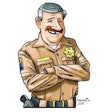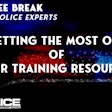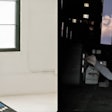The first time you get a subpoena to testify in one of your cases, you might experience an uncomfortable feeling of anxiety. Law enforcement officers quickly develop confidence and ease in the field, where they're more or less in command of most situations. But the courtroom is different.
In court, you aren't the one in charge. The prosecutor is handling the case, defense attorneys are challenging you, and the judge is presiding over everything and telling you whether or not you can speak. There are formal rules of procedure and evidence that may be unfamiliar to you. Sitting on the witness stand, you may wish you were handling a Saturday night bar fight call instead.
After your first few times testifying, however, this aspect of the job can become tolerable, if never completely comfortable. To make it as easy on yourself as possible every time you go to court, take steps to understand the process, to be well-prepared, and to learn to handle both direct and cross-examination. Here are some tips.
Preparation for testifying in court doesn't start when you get a subpoena. It starts when you get a call (or when you initiate an investigation). The things you say and do in the field will get played back to you on the witness stand.
For better or for worse, your manner of dealing with people in the field during high-tension actions will get examined in the safe, secure, orderly courtroom, where citizens who have been called to jury duty expect to hear that their law enforcement officers behaved with good judgment, firm control, fair treatment, and exemplary language and deportment. When the prosecutor is asking the jury to take your word over the defendant's, it can hurt your credibility if the way you interact with others reflects poorly on your character.
For example, some officers think it's OK to use the same kind of language the crooks use. But if your commands to suspects are laced with profanity, you'll lose credibility points with many jurors. And if the issue is whether you used excessive force or strayed outside the performance of your official duties, some jurors will take your coarse language as an indication that you're a person of low personal standards. They might think such a person could be more likely to use excessive force, or commit other misconduct.
Every prosecutor has stories of good cases going south when a disapproving jury heard a witness repeat (or heard a tape of) the arresting officer's string of vulgar and blasphemous language directed at the suspect. You start preparing for court by eliminating that kind of language from your on-duty vocabulary. Behave as if every contact is being recorded (maybe it is), and as if every case is going to trial. Unless you would be happy to have the judge and jury hear your exact words, find another way to say what you need to say.
Preparation also includes being thorough and accurate in your reports. Leaving out significant facts-or making mistakes in descriptions, dates, times, addresses, names, and other details-can come back to haunt you when you have to rely on a report to refresh your memory months or years later. You may also find yourself in hot water when a defense attorney confronts you with factual errors in your report and asks whether your testimony is as inaccurate as your report.
When you compose your crime and arrest reports, assume that the case will be going to court long after the details of events have faded in your memory. Give yourself all the help you can by including everything that you can foresee might be important, and being careful with the accuracy of details.
As appropriate, attach diagrams that might be helpful, including measurements, directions, objects, lighting, vehicles, bodies, evidence, weapons, etc. Show the composition of photo identification displays, the exact wording the suspect used to give consent to search or to waive Miranda or to confess, the results of forensic tests, and the evidence that tends to negate anticipated defenses to the particular crimes. If you could expect to be asked about something at trial, put it in your report.
To be sure you don't forget, calendar your appearances-date, time, and place. Depending on the seriousness of the case, it might be a good idea to phone the attorney who subpoenaed you (usually the prosecutor) to find out what kind of proceeding is scheduled: pretrial motion, preliminary hearing, trial, or other proceeding. Ask what the attorney wants you to testify about, and what he or she anticipates the major issues will be. Find out if the attorney expects you to bring the evidence to court with you, or to prepare a diagram or take photos for use with your testimony. Ask whether you should come in uniform or plain clothes. Check to see if there are any matters that have been ruled inadmissible or suppressed, so you don't inadvertently refer to them during your testimony.
Pull your reports and read them. Then re-read them. The defense attorney will have read them several times and will have spotted every error, inconsistency, and omission. You should know what is and isn't in your report before you take the stand.
If appropriate, revisit the scene and refresh your memory of the relative locations and sizes of streets, buildings, signs, street lights, trees and shrubs, obstructions to observation, and other peculiar features. If there are items of physical evidence in your evidence locker that your testimony will discuss, reexamine them. Be sure you know how to identify them. For example, if you wrote your initials and the date or case number on an item, check to see where that was done so you'll be able to point it out in court.
Once you get to court, the judge will likely instruct you not to discuss your testimony with other witnesses. However, there is nothing wrong with talking to fellow officers or others before going to court. If there are details about an incident that you've forgotten, it is not improper to discuss the case with another officer who was there, if that helps to refresh your recollection. (If you're later asked about this on the stand, simply say that you did so in order to recall a detail or to confirm your memory.)
Be prompt. Never keep the judge and jury waiting for you. If you're unavoidably delayed, call the court and advise someone (such as the court clerk, prosecutor, or bailiff) why you're going to be late and when you expect to arrive. If you later find that you won't be able to keep your estimated arrival time, make another call. When you get to court, notify the bailiff or prosecutor and see whether you should remain in the courtroom or wait outside.
Any time you're in common areas, such as parking lots, hallways, elevators, and cafeterias, be courteous but do not discuss the case with or around anyone. Other people you see could be jurors, judges, witnesses, defense attorneys, or defense investigators. You could cause a mistrial or other difficulties with careless discussions in the presence of people connected to the case.
When you are called into the courtroom, someone will tell you where to sit or stand to take the oath. If you are asked to state your name, do so in a clear, firm voice. When sitting in the witness box, you may nod a greeting toward the jury, and then face the attorney who called you and wait for the first question.
Direct examination (by the attorney who called you, usually the prosecutor) will generally begin with your identification and experience. The next series of questions will establish jurisdiction and "set the scene" (date, time, location, and why you were there). Questions will then turn to the facts of the case.
Cross-examination (by the opposing attorney) will typically go back over the same ground you've already covered, but in a different order and form, and may go into areas not already discussed. The goal of the cross-examiner is to undermine parts of your testimony that damage the adverse side. This could be done by revealing inconsistencies in your reports and testimony, suggesting that you are biased, questioning whether you could really see and hear the things you've described, testing your ability to recall peripheral details, and getting you to agree to the possibility of events you don't actually know or recall.
As with everything else, the more you testify, the more proficient you will become. So when you receive a subpoena for traffic court, juvenile court, or a misdemeanor jury trial, don't try to "get out of testifying." These are good opportunities to ease into your role as witness and gain experience that will stand you in good stead when you have to spend a day or two on the stand in a felony trial.
If possible before your first appearance, try to sit in on another officer's testimony in a case where you are not a witness. Observing someone else's performance is a good way to become familiar with local practices and the flow of courtroom proceedings.
And every time you take the witness stand, remember the first principle of testifying: Tell only the truth, and only tell the truth you know.
Devallis Rutledge is a former police officer and veteran prosecutor who currently serves as Special Counsel to the Los Angeles County District Attorney.













